Chef Yoanne Magris—culinary adventurer extraordinaire and contestant on the Food Network’s notoriously spicy cook-off series Chopped—sat down with GO to discuss her love of food, travel, and bringing people together; the struggles and sacrifices that got her where she is today; and how she plans to make the world a more delicious and drama-free place.
Yoanne, it’s obvious that you’re in your element, running this charming little corner of the world in East Harlem. How did you discover your inner chef? What’s your earliest memory of inspiration in the kitchen?
My earliest memory…it was a Sunday, and I was sitting with all of my family. My grandmother has 14 brothers and sisters, so it was a bunch of aunts and uncles gathered with my cousins. We had just been to the market, and we bought all these whole fishes, it was a celebration. It was so much fun, we were painting eggs for Easter, and at that moment, I knew in one way or another that I would end up being in this field, because I love that idea of gathering around a table and sharing. It was just such a happy thought and a happy place for me.
I always went to the market with my family, this was a destination with my father, and it was a joy to try the fruits, the meats, the vegetables. I lived in a lot of different places around the world as a child, and I realize how important it is to incorporate the primary flavors of a place.
You’re talking about the outdoor farmer’s markets that are everywhere in Europe, right?
Yes, they’re very typical in France. I’m Lebanese, Greek and French, so it could be called le marché (the market) or le souk. It’s always the same thing, the small farmers, the small vendors, the same as in Union Square. I love going to Union Square, you can close your eyes and smell the fruits, the vegetables. It’s just so special, it inspires you to create new dishes.
But when you first came to New York, you didn’t know you were going to be a chef. What brought you back to the field?
Growing up, I didn’t realize I could do this as a career, instead of a doctor or a lawyer—what your parents want you to be. But I came to New York and I met this woman, this chef who inspired me. She gave me back that feeling I had when I was a child. I was in school at the time, finishing my International Public Relations major and working as a waitress for pocket money, and I would watch her in this three-star Italian restaurant. She was a tiny woman, and the thing she loved to do most is make little meatballs. She would spend the whole day making those meatballs with so much passion, and everybody would go up and talk to her. She’s one of the only chefs I know in New York who respects the tradition of sitting down with the staff after each service to have a full meal with them, and explain to them the different foods. My experience in that restaurant with her inspired me to go start over, to go to culinary school, and then I started practicing small dinners once a week at home with friends. It just worked.
And now you have your own place. What do you love most about running your kitchen?
It’s the freedom to do whatever I want, and to transfer my love for my food and my kitchen and my dishes to the people that I work with and for, and to see that love in them afterwards. There’s a special thing about me I think, as compared to a lot of chef/owners—I’ve worked as much in the front of the house as I have in the kitchen, and I try to bring a unity between both sides. You run a kitchen, you run a restaurant, you love what you serve, you love what you cook, and the waiters do the same thing, they show that love.
That’s what I love about this restaurant—the first one that I’ve owned, solely me and my family—we are free to create, to give that love, really, because it is love. You cannot do this for so many hours a day if you don’t love it.
And you can taste the love! How do your best ideas for new dishes come to you?
First, no chef knows everything, every day you learn. Dining out is big, tasting new flavors, new techniques, meeting the chefs, and just trying new combinations. That’s fun.
Then seasonal products, work with them. Inspire yourself, and don’t be afraid to be adventurous. I’m adventurous because I have these different cultures inside of me, so I’m not afraid to mix spices and ingredients in unconventional ways.
And of course I listen to what my customers want. If anyone comes and says, ‘I’m in the mood for this,’ my sister and I will make sure to have it planned for that same week if possible. I take their phone number, I go to market, and I call them to say it’s ready, you can come.
Is this why your catering business is so successful?
Partly, I do two kinds of catering. There is traditional catering, where you establish a set menu for a corporate dinner, or a wedding or a party. Then there is the other side of catering that I do; I’m a private chef for one family. I always say this is my hardest job, not because of the hours—they are my chosen family here and I love them to death—but because I have to do lunch and dinner three times a week. I have to create a three-course meal, so it’s not like doing a set menu. Sometimes I walk into the store the same Friday I have to serve dinner and I have no idea what I’m going to do. So I look around at the different fruits and vegetables that are available, and the different fishes, and I try to inspire myself to see what I can do differently this time. That’s the hardest, and it’s amazing because they keep pushing me and pushing me. They never tell me what to serve, I’m always free to do whatever I want, but it’s always an appetizer, main course and dessert. I did this dish with risotto and large shrimps (I try to use as many shrimps as I can because of what happened in the Gulf of Mexico)—I flambéed it and they loved it so much that I’ve been serving it every other weekend for their guests.
What’s your personal absolute favorite dish of all time?
Spaghetti with garlic and olive oil, a classic. And I love clams, so I love linguini di vongole. I could eat this for breakfast, lunch and dinner. The pasta must be cooked absolutely perfectly al dente, not too much, and the clams you have to constantly watch. It’s one of my favorite dishes to make and to eat.
What’s your guilty secret? In terms of comfort food, unless there’s something else you’d like to reveal…
Dark chocolate! There’s one that’s my favorite, and all my friends bring it back for me from France. It has a dark chocolate coating with little almonds inside, and in the center there’s chocolate mousse. After a long 14-hour day, going home and relaxing with half a glass of red wine and that little chocolate waiting for me, that’s my ultimate péché mignon (literally translated it means “cute sin”).
What were your primary goals when putting together the concept and décor for Yo In Yo Out?
I’ve always worked in very big places, most of the time more than 100 seats. But I’ve always liked the small places, because you have time to talk to your customers and build a relationship, so that was my idea.
The open kitchen is very important, there are no secrets. You come into my restaurant, you’re going to pay for your meal, so I want you to see how we do it, how we make it, how we take care, how we take our time when we’re slicing a tomato. We’re not just chopping it and squeezing it, no no. It’s important for me, I want you to see everything.
The living room area is the best way for the guests to introduce themselves, to talk while they’re waiting and share their experience, and it works. On the weekends it’s packed, people mingle and have conversations. It’s just perfect.
Regarding the décor, I used to date a very famous painter who worked mostly with trompe l’oeils [illusions]. She’s so talented, I was always mind blown. One day I said, ‘I’m leaving for four days to St Barths to pick up my sister who’s coming back with me to open the restaurant, so do whatever you want. It’s yours, you paint it.’ And I came back, and she had surprised me with that wall behind you with the fleur de lys. Magris, my family name, means orchid flower in Spanish, and it’s also the symbol of French royalty. I was just so happy. And the sky [painted on the ceiling] is just beautiful, and the bathroom is just like in Versailles.
Everything else in this restaurant was custom made. The couch was built in one piece, I designed it myself to be the most comfortable. The wood on top of our bar is a tree we brought back from Long Island in one piece, but everything else that you think is wood is painted as a trompe l’oeil. It was painted with one paint brush!
My pride and joy is a collection of coffee cans that I’ve been gathering for many, many years from different antique stores. I grew up in a very big house with 16 rooms, and every hour my family would meet in the smallest living room and we’d sit and have coffee. We’d talk about what we were doing, and everything else. It’s very traditional in the Mediterranean culture. Coffee for me is a symbol of getting together.
How did you come up with the name Yo In Yo Out for your restaurant?
My mother came up with that. My closest friends always called me Yo or petite Yo. In my ten years experience in New York in the restaurant world, wherever I’ve been they never say, for example, ‘I’m going to Barolo.’ They always say, ‘On va chez Yo (we’re going to Yo’s).’ So at first I wanted to call this place Chez Yo, but I thought it was a little too snobbish for this area. Then my mother called me one morning and said, ‘I had this dream! You know the song Djobi Djoba [yo vi, yo va] from the Gypsy Kings? Why don’t you call it Yo In Yo Out?’ I cracked up, I laughed so much, and I said, ‘You know what mom, that’s it!’
You’ve lived in East Harlem for over a decade, right? Had you been looking in this neighborhood specifically for restaurant spaces?
I lived in West Harlem for eight years, and then I moved to East Harlem four years ago, but I’ve known this block for a long, long time. I used to take the bus when I worked midtown at 60th and Lexington, and whenever we passed this block after the hill at 103rd Street, I always thought, this is a special place, with the churches and kids playing in the street all the time, and the beautiful brownstones, and the first restaurant that opened, Itzocan. I had been eyeing this block for six years, I love this block. I always had the feeling that this was going to be the new up-and-coming neighborhood and I was right. Today they say the new Upper East Side now goes up to 103rd, but we don’t call it the Upper East Side, we call it “our block.” Everybody from all five restaurants on this block gets involved with the community, we stick together. It’s very special, and I’m very glad I opened here. It was a good choice, and the people here, our clients have become family.
Are your customers mostly local to the neighborhood?
About 50% are locals, and with my background working on the Upper East Side for so many years—I’ve always worked between 86th and 96th Street on Madison Avenue for some reason—the other 50% are customers that travel from downtown, midtown, uptown, who know me from other places and word of mouth.
Do you get much down time between running Yo In Yo Out and all the excitement of being on Food Network’s Chopped?
My schedule is quite insane. I run a restaurant and a catering company that’s especially busy in the summer, but I’m very thankful that my sister runs the restaurant with me. I always say that she’s my boss now, she took charge. She’s the pastry chef here and general manager; we’re famous for our desserts and I’m very proud of that. My day starts at 6am and ends at 11pm, so if I want a little bit of a social life, it has to happen between 11pm and 2am.
Rumor has it that many chefs have a tough time dating because of the long hours and intensity of the job. If someone wants to hold your attention, what should she bring to the table?
First of all they have to enjoy food. I love food so much, and if you want to be on a date with me, don’t order your own dish. We have to share. I like to take a few appetizers and main courses and share everything, because it gives you more options.
Do you order everything when you’re on a date?
Actually no, I don’t.
Really? Because if I was on a date with you, I would say please order for both of us, since you’re the expert.
No, you see that’s a mistake. When I go out to dinner, I like her to take charge, because I have to take charge all day long, all the time. And on your first date, it’s interesting to see what someone orders, what their palate is, what they like. It’s a way of discovering a little bit about who I’m with.
Ah, that makes so much sense! Your episode of Chopped is airing [Tuesday August 10]—you must be so excited to watch it, right?
I am very excited, and very nervous also. I know what happens, of course, but for me it meant the world. Honestly, 12 years of battling in New York, and now to be on TV!
That was your first time on TV?
My first time ever on national TV. I’ve been on NY1, but to be on national TV in a competition where you can’t control anything, and it’s the situation around you that’s controlling, and you’re nervous because you want so much to prove yourself, and prove to the people that supported you for so long that you can make them proud. I think a lot of people no matter what will be proud. It was very emotional for me. The only thing that was going through my mind the whole time was my grandmother.
What’s her name?
Eftalia, which means seven, because she was the seventh kid. It also means joy. She’s very sick now, and I hate being so far from her. I really did for her.
Will she be watching?
Oh yes she will! I bought this whole technology to record the show so I can send it to her. She doesn’t speak English, but you know, it is very important for me, and for her. For any grandmother, any mother, any father, any member of the family. She had a very tough childhood, but she has a beautiful story—of falling in love but not being allowed to love who she wanted, having to marry who parents wanted her to, and living during the war. She always stood straight, and never showed her pain. The only weakness she had was with her grandchildren, and I was the first.
I came to New York with all my pride, with nothing else but $100 and a round-trip ticket, on a mission. My mission was: I’m going to do it on my own, no matter what. I’m a sensitive person, I can be tough every day at work but I go home and I cry sometimes because it’s such a long, hard day. And to be there [on Chopped] after all this time, and all the sacrifices I’ve been through—living in shoeboxes, having $2 a day to eat sometimes, and 59 cents of it going to my cat in a can—but believing, working hard, going back to school again. You have to put a lot of your pride on the side when you’re a woman working with chefs who are mostly men, it’s not easy. I had a few really bad accidents, I chopped two fingers off, I got them sewed back on (you don’t see it, thank God, I have amazing friends that help me), but here I am, you know, here I am, no matter what.
This story is not only for me, it’s for everybody else. I don’t want to be a hero, but if you really want something, project yourself the highest way that you can, because you will arrive there. Even though it might not be the most magical story, you will get to a high point, you just have to project yourself, and believe that you’re good enough, worth enough. You work hard and you sacrifice enough, and it will happen. I know it, it does happen, it did happen to me, and I’m not the only one.
What was the experience of being filmed while working like? Was it what you expected?
Yes and no. They came here looking for chefs for the show, and I had never heard about it because I never watch TV. I go home, and if I read one page of a book, it’s extraordinary—and I love reading! So I said okay, I’ll do it, why not, it’s fun. Then I started watching the show and I was so scared, because I had already signed up, and I thought, what am I doing, I’m never going to make it. It’s very harsh, the conditions, the short time frame that they give you to put together dishes, the ingredients that have nothing to do with one another—sometimes it doesn’t seem logical, and I understand the concept of the show. It’s challenging.
That seems right up your alley, what you do naturally…
Correct, but certain products need a certain amount of time. Like rhubarb, it needs a certain amount of time to cook, and if they give you only 20 minutes to cook down rhubarb, you really have to use every possible technique from your education to make it happen. I want to thank to my French background and my school, because without that education, I would never have been able to break down certain of my recipes that I used during the show.
Which dish are you most proud of creating from your challenges on Chopped?
I can’t tell you too much about what happened during the show, but I can tell you that I was very proud of my appetizer. And I couldn’t believe what I did with one of the ingredients that I hate the most and that I never eat! So that was very, very challenging. I can tell you the first few ingredients we were given for the appetizers were banana chips, sardines or anchovies in a can, and a big Spanish squash that looked like a soccer ball. Obviously I hate any kind of fish that comes in a can except for tuna, so I don’t know how I came up with that appetizer, but it just came to me like Boom! And I was very proud of it.
How did the extreme criticism coming from the notorious Chopped judges affect you?
It’s true, they are critical. There are nine chefs on the show judging you, and they’re all extremely famous, and extremely successful. I saw how they were criticizing the other chefs on the show, and I don’t know how it’s going to look on TV after the editing process, but I think they were fair. They had their critiques of the moment, but the public mustn’t forget that the time frame that is given to you with the ingredients that are given to you are not that easy. You have to realize that it takes a while when you work with ingredients you’ve never put together before in your life. You have start with your thought process, you think about what you can do, and once you do that you execute, then and think about what else you can add. It all takes time.
Also the nervousness—the camera, the heat, the judges talking as you’re performing, other chefs running around you, and they critique you after all that. It’s based on your results, but there are a lot of circumstances that affect those results. If you don’t plate on time using all the ingredients, you’re disqualified. So it’s a hard challenge, and sometimes you want to say [to the judges], ‘Wow, you weren’t there trying to do this with that ingredient!’ Or, ‘I’m sorry you don’t like onions,’ because one of the chefs doesn’t like onions, but my guests love onions!
Did the experience give you any new ideas that you brought back to the restaurant?
One thing: I’ve started using honey more in my sauce reductions. I couldn’t find the honey in the first dish on the show, so I had to use maple syrup. Since then, I don’t know why, I’m using honey more for purees, et cetera, and you’ll understand why. I’ve been trying to find a lot of different varieties of honey with a lot of different flavors in them, and it just brings a different kick to mashed potatoes, and lots of other dishes. You’ll see.
Do you have any plans for the near or far future that you’re particularly excited about?
Yes! I’m starting in the fall to organize trips for small groups of friends and couples in properties that I’m renting out around the world. This is a new concept that will be so much fun. Right now I’m organizing a trip to go to Guadeloupe. I’m trying to put it together for four couples, which includes me with another private chef, along with activities. It’s all about food and having a good time. I’ve traveled so much in my life, and I have a lot of friends living in places like Italy, France, Germany, and the islands in St Barths. I thought this would be a great way of bringing that experience to the table, having everything prepared for you, a little bit of luxury in a simple way.
The activities will all be focused around food. For example on this trip in particular, we’re going to go horseback riding around the mountains, and there’s an elaborate picnic that will take place at a special site during the ride. Obviously I’m organizing the whole picnic with everything local, so I’m dealing with the people who live there for regional wines and produce, everything that celebrates the locale and its cuisine and culture.
On my trips there will be nothing to worry about. Everything is taken care of including travel arrangements, accommodations and cleaning service, and all reservations. There will always be two or three nights in the seven-day trip dining in restaurants with chefs that I personally know. Trips will always be for a group of 8, not more than four couples or eight friends. And no drama!
Watch Chef Yoanne Magris compete on the Food Network’s Chopped, airing Tuesday, August 10 at 10pm ET/PT.

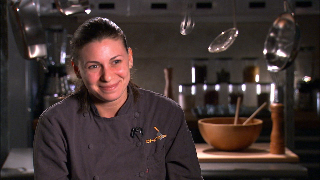
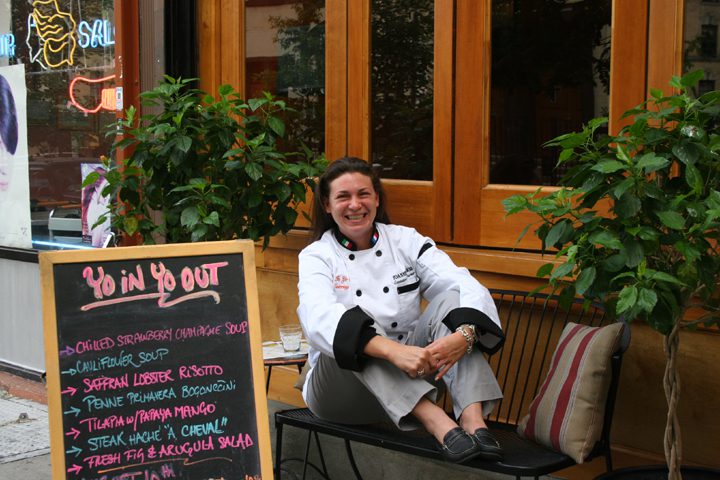
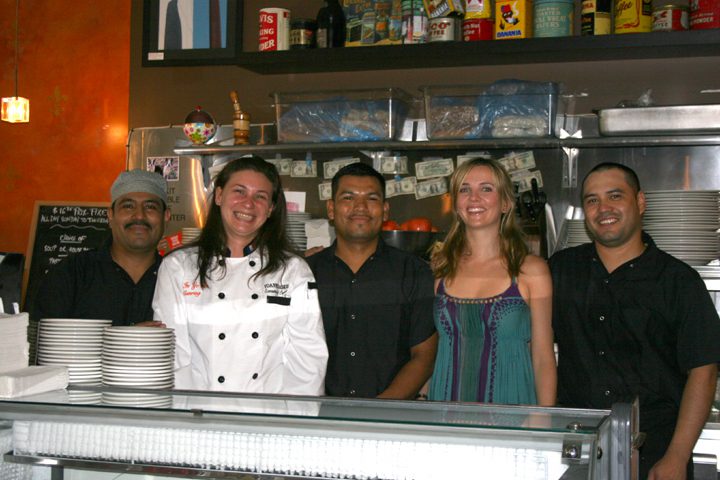

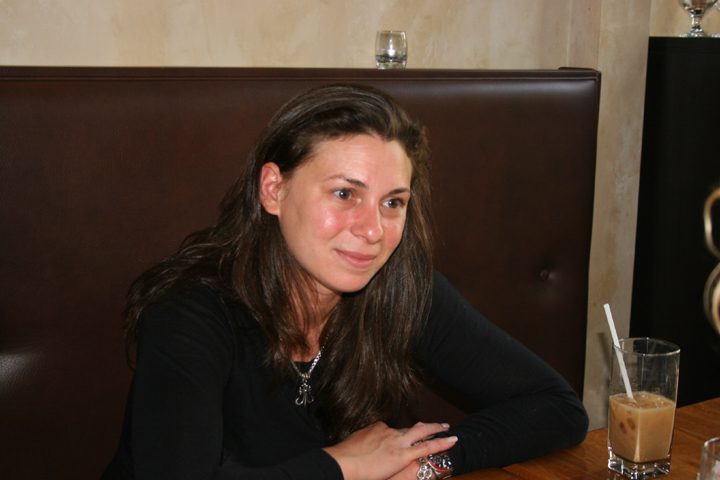
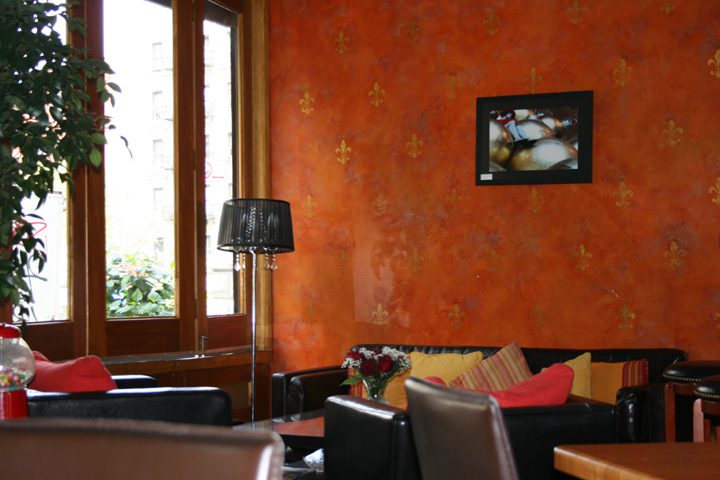

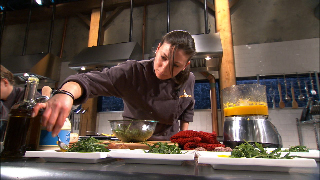
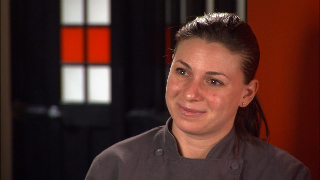
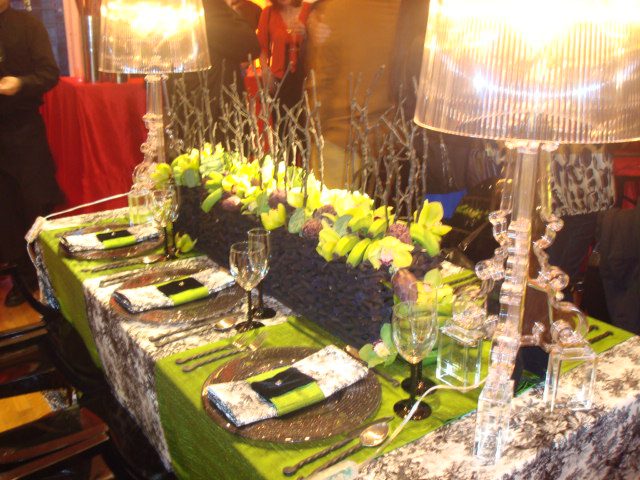
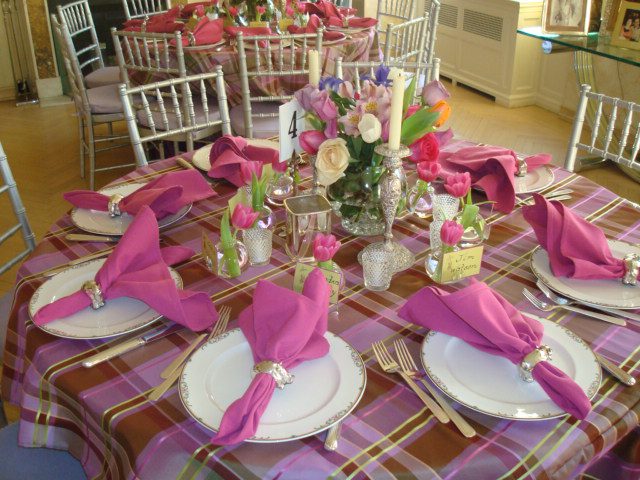
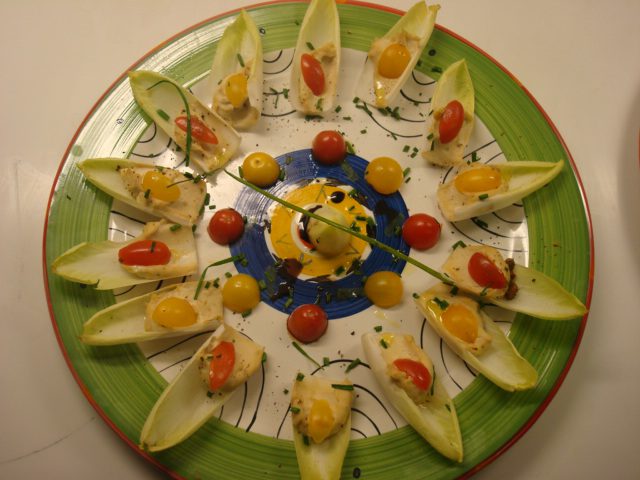
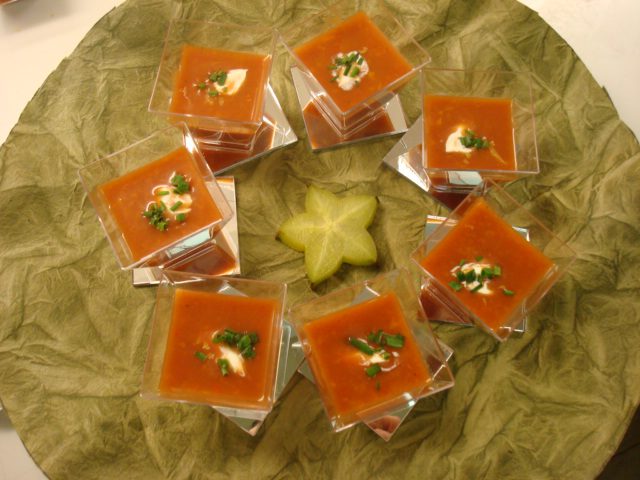
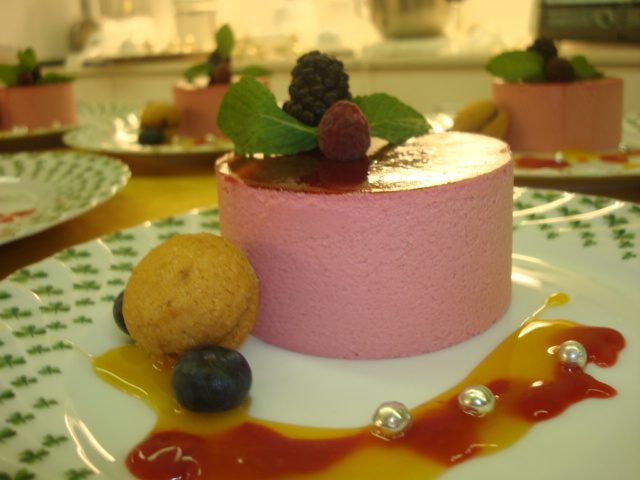
What Do You Think?